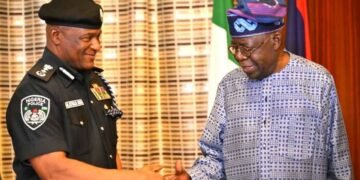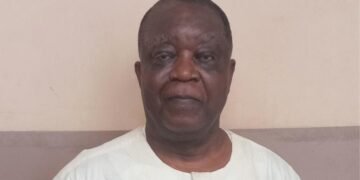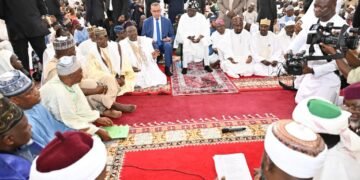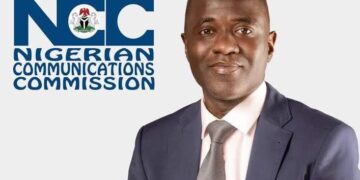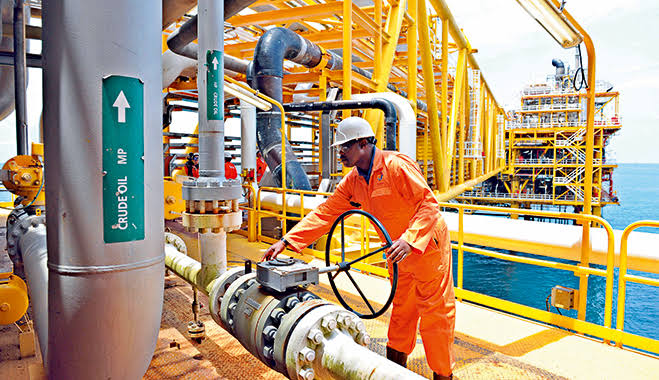By Ijanada Jantiku
Nigeria, like other OPEC countries, has crude oil as it’s major contributor to the country’s revenue. Nigeria’s economy and budgets have been largely supported from income and revenues generated from the petroleum industry since the 1960s. However, oil revenue is gradually reducing. The National Bureau of Statistics(NBS) report reveals that the Oil sector accounted for 9.25% of aggregate real GDP in Q1 2021, and petroleum exports revenue represents around 86 per cent of total exports revenue.
The Nigeria Extractive Industries Transparency Initiative’s (NEITI) 10 years (2010-2019) report which was released recently shows that aggregate financial flows from the oil and gas sector to the government amounted to $418.54bn, with the highest revenue flow of $68.44bn recorded in 2011, while the lowest revenue flow of $17.06bn was recorded in 2016.
This is to say that the country made four times in 2011 what it made in 2016 and the combined oil receipts from 2018 and 2019 are not up to the $68bn received in 2011. In 2010, Nigeria exported over one million barrels per day to the United States of America, representing 9% of the U.S total crude oil and petroleum products imports and over 40% of Nigeria’s exports. But sadly, there are little or no pointer to what was done with the money made in the period of oil boom. In spite of the windfall, the last People’s Democratic Party (PDP’s) administration still took loans from local and international lenders and left behind a debt stock of $63bn.
NEITI’s report also showed that the country had made in excess of $300bn from the sector alone during the era of the former administration. The question is, how did so much money vanish without traceable impact on infrastructure development, and the citizenry in the period leading to, and up to 2015. And it was at about this time of oil windfall that a World Bank report indicated that 112 million, or about 63% of Nigerians, were living under the poverty threshold of less than $1 a day, compared to now that the figure has reduced to 82.9m as at 2019 even with a higher parameter of $1.90 a day.
Luck has not been on the side of the Buhari-led administration like it did during the time of the (PDP). Not only did the price of oil drop during the Buhari administration, COVID-19 pandemic caused the forecast oil revenues to decrease by more than 80%. According to the Director General in charge of Budgets, Ben Akabueze the budget had to be lowered to a base of $20 per barrel. To make matters worse, the country fell into recession twice as a result of collapsed crude oil price, Covid-19 pandemic and the resultant inflation.
President Muhammadu Buhari totally surprised the world by successfully and meticulously navigating Nigeria out of recession faster than countries with more resilient economies against International Monetary Fund (IMF’s) projections
The country which was largely dependent on oil is gradually changing trend as the non-oil sector is seen to be contributing more to the country’s revenue. This is a testimonial that President Buhari is diversifying the economy as promised.
The Special Adviser to the President on Media and Publicity, Femi Adesina in an interview recently said that while 10 years ago, petroleum contributed more than 70%, even up to 90%, to GDP, you will find that today, petroleum contributes just about 45% and non-oil products contribute about 55% to the Nigerian economy.
From NEITI’s report, it is estimated that the Buhari administration made $106bn in its first term in office, while the highest oil sales accruals under him were in 2019 when it made $34.22bn, an increase of 4.88% compared to 2018 when it made$32.63bn from oil sales. Despite the fact that the Buhari administration was hamstrung with a reduction in revenue earnings as a result of several factors, the accrued funds have been channeled to meaningful projects like roads, railways, airports and power; and these are visible for all to see.
Also, part of the proceeds was committed to what the World Bank has described as the largest social welfare initiative in Sub-saharan Africa. So when officials of the Buhari administration say that this government is doing more with less, it is within this context and especially as legacy projects, like the Lagos to Ibadan railway line, was started and completed alongside the abandoned Itakpe-Warri rail project which began 30 years ago but was completed by the incumbent administration. There is also the ongoing Second Niger Bridge and the Kaduna-Kano highway, amongst others.
If previous governments had thought in this direction, we would have been better off today and wouldn’t have to deal with so much infrastructure deficit, among others. Nonetheless, we are now on the right path, gradually and steadily we are making progress.




